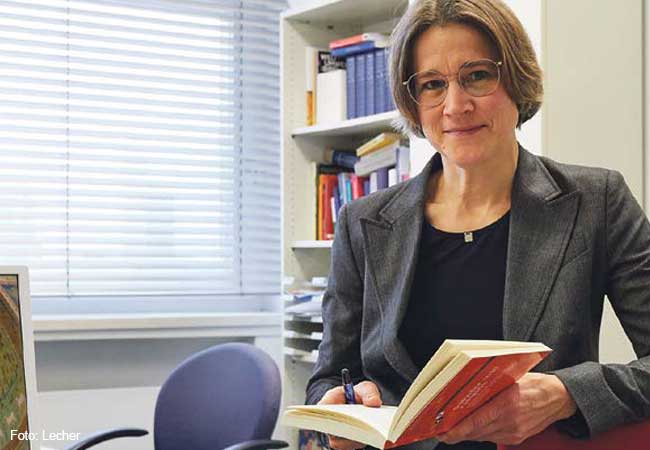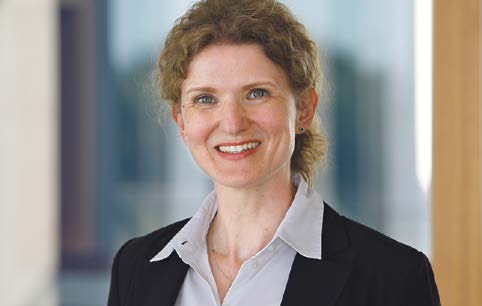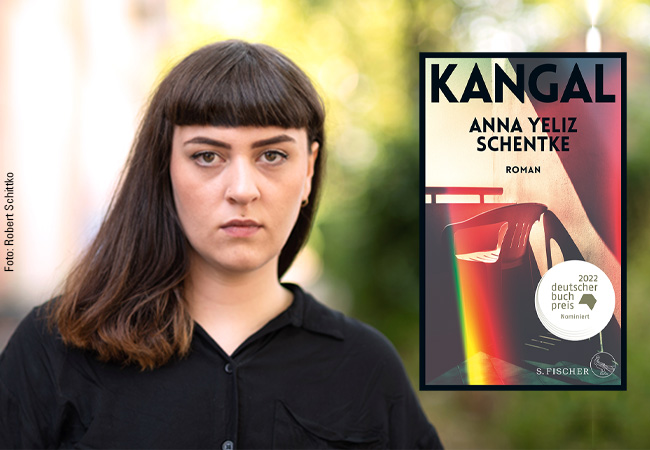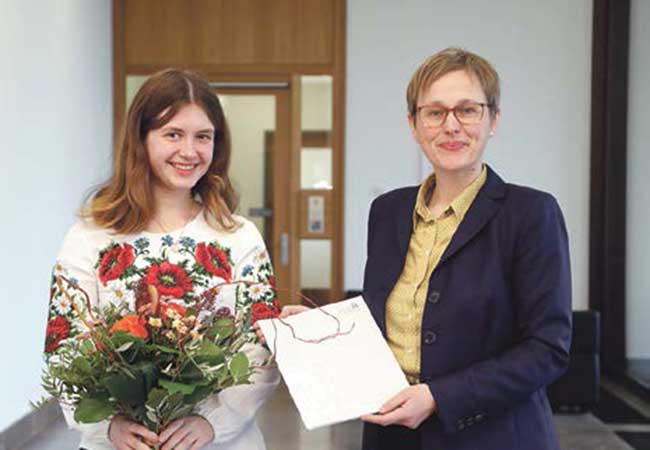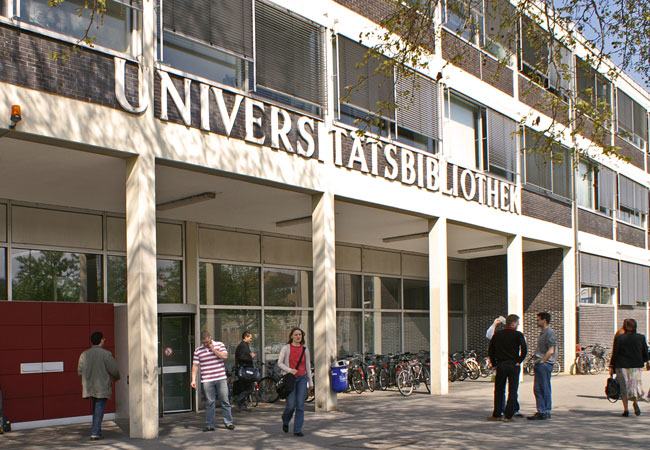When thinking about or discussing her academic work, Annette Langner-Pitschmann is on the margins. She herself puts it like this: “It is the job of theology to apply reason when reflecting on the contents of a religious belief. There must be people who focus on the individual aspects of a specific religious tradition – in the case of Christianity, the idea of the trinity, for example,” she explains. “At the same time, however, there must be those who go to the farthest limits of this conceptual world and ask questions about its relationship with totally different world views. I am one of those people.”
Langner-Pitschmann is Professor of “Theology in Times of Globalization” at Goethe University’s Faculty of Catholic Theology. She says, “Theology becomes especially exciting for me when it asks how the perspective of a particular religion connects with other ideas and concepts, and how one’s own logic of religious interpretations of reality can enter into a dialog with the logic of other individuals and areas of life.”
Langner-Pitschmann points out that the term “globalization” is not limited to the economic dimension, even if every critical examination of globalization has to keep the history of colonialization in mind. “One of the most salient features of the current phase of globalization, which started around the 1990s, is that global connections play a major role in the everyday lives of most people,” she says, adding that, seen in this way, globalization designates a state of connectedness that is applicable to politics and world views just as much as to aspects of business and culture.
One of many options
“In this connected word, religiosity is just one of many options on which to model one’s life. We can choose it, but we don’t have to,” Langner-Pitschmann says. She would like to answer the questions of how multidimensional globalization affects people’s self-image and how globalization alters theological approaches and ways of thinking in particular. “How can theologians – human beings with reason, for whom globalization is part of everyday life – reflect on religious attitudes and convictions? What are the consequences of the fact that talk about ‘God’ is not easily translated into the language of common social discourses? In this reality, can theology claim to articulate positions that could also be comprehensible or even of interest to non-religious contemporaries?”
To find the answers, Langner-Pitschmann also examines the phenomenon of people having to live in an ever more complex world. Her observation: “Many people are overwhelmed by this complexity and turn to simpler ideologies and world views.” That is one reason why, she says, why fundamentalist interpretations of religion are becoming increasingly popular, pointing to the position of radical evangelical groups in the US as an example. Given the huge popularity of these communities – which restrict themselves to a literal understanding of the Bible, deny the existence of evolution, among others, and adopt a pre-modern world view on this basis – Langner-Pitschmann asks herself: “What individual conditions are required for a religious life perspective not to become a rigid, closed world view? Under what conditions can beliefs still connect with free and frank discourses? In the wake of social pluralization: What is the decisive factor needed to prevent religious interpretations of reality from turning into rigid ideologies?”
Five years of the “free economy”
Langner-Pitschmann already considered the philosophy of religion in her doctoral thesis, which she wrote after having spent the first five years following her degree in the private sector instead of the university environment. Having obtaining her doctorate, she spent two years working as the director of a Catholic educational institute and had teaching contracts at several Catholic universities in Austria. Two-and-a-half years ago she took up the newly created “tenure track” chair of “Theology in Times of Globalization.” (Tenure track means the incumbent has to fulfill certain conditions, agreed when appointed, for the professorship to be converted into a permanent position.)
“Looking at the social contexts of theology has long been part of our faculty’s unique profile. By establishing my chair, Goethe University has greatly sharpened that profile,” Langner-Pitschmann says. All faculty members consciously seek academic discussions with other disciplines, including philosophy, history and the social sciences. In so doing, the faculty offers its students a theology that does not lose its way in internal ecclesiastical discourse, but instead examines existential questions of the time. It is clear from what Professor Langner-Pitschmann recounts that to her it is a great privilege to be working in this setting.
Author: Stefanie Hense


